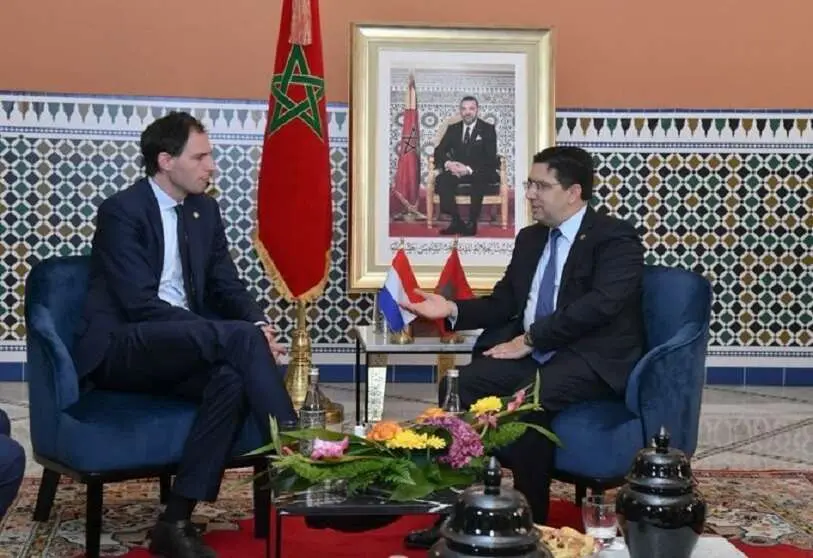Países Bajos confirma su respaldo a la soberanía marroquí en el Sáhara Occidental

Morocco continues to find international support in the search for a solution to the Saharawi conflict. The Netherlands joins the list and supports the Moroccan plan to resolve the Sahara conflict. The European country thus confirms its decision following the official visit of the Dutch deputy prime minister, Wopke Hoekstra, who is in the Maghreb kingdom. He held talks with his Moroccan counterpart, Nasser Bourita, at a bilateral meeting in Marrakech on the occasion of the Global Coalition against Daesh.
"The Netherlands and Morocco affirm their support for the personal envoy of the UN Secretary-General for Western Sahara and his efforts to continue a political process aimed at reaching a just, lasting and mutually acceptable solution in accordance with UN resolutions," the Dutch statement said. In line with the decision of other nations, the minister said the Moroccan plan is serious and credible.
The Dutch resolution only strengthens relations with the North African nation. Hoekstra even invited Bourita to pay an official visit to the Netherlands, and in the joint note the two ministers attached importance to the rapprochement and the relationship between the two countries. In it, they promise to continue to cooperate culturally, socially, economically and on human rights issues. They also want to strengthen cooperation on other issues, such as emigration.
The two ministers also discussed the Ukrainian conflict. Both agreed on the imminent need for Russia to put an end to this barbarism and leave Ukraine. This is because of the huge impact it is having on the food and energy sectors, which are seeing ever higher prices.
The Netherlands joins a list that is gaining more and more support. In recent months, many European countries have begun to support the Moroccan cause. This is the case of Spain. Recent overtures have led Spain, for the first time in decades, to recognise Moroccan sovereignty.
Other countries have also recently shown their support for the Moroccan formula of broad autonomy for Western Sahara under the sovereignty of the Alawi kingdom, such as Cyprus, Serbia and Slovakia, following in the wake of recent bilateral meetings held by Morocco's Minister of Foreign Affairs, Nasser Bourita.
In other cases, various associations are being formed in the countries to lobby the government to support the cause. In Belgium, for example, an association called COBESA has been created to lobby the Belgian government to support the plan and end the conflict through peace. This organisation has a number of national personalities who defend the plan, such as politicians, lawyers, ambassadors, etc.
Relations between Morocco and the Netherlands are at a very favourable moment for both parties and are beginning to sign beneficial agreements. Now, the Alawite kingdom has signed a memorandum with the Dutch nation in which they intend to strengthen mutual cooperation in areas related to security. The news was confirmed by the Directorate General of National Security (DGSN) in a statement.
The DGSN confirms that the Director General of National Security and Territorial Surveillance, Abdellatif Hammouchi, met with the Director of the Dutch Police to sign this new agreement. The two parties have agreed on a letter of intent, in which the main objective is to improve their relations and to fight against threats to the security of the two nations and their interests.

"This agreement aims to enhance and strengthen this collaboration in order to respond firmly and effectively to the challenges arising from transnational organised crime and threats related to terrorist threats and violent extremism," the DGSN said in the statement.
This letter of intent will also allow them to assist each other in addressing these issues. The two sides will begin with the exchange of information, knowledge and expertise that aims to strengthen collaboration on issues such as criminal investigation and training of law enforcement agencies.
"In order to ensure the coordination of joint efforts and to guarantee the efficiency and diligence of cooperation between the two parties, a central focal point has been designated at the level of the DGSN, as well as at the level of the Netherlands Police, with the task of facilitating and accelerating the exchange of correspondence, communications and requests necessary for bilateral cooperation," the document continues.








